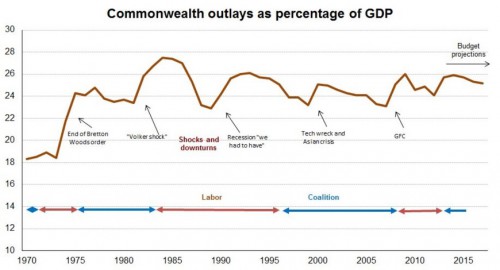QUESTIONS of fairness and equity come to the fore in Budget week. It is not that fiscal management issues are dismissed – over the long term we should be living within our means.

Interestingly, there have been a series of challenges to the general community in the weeks leading to the Budget. The first two were in popular television programs on government channels. SBS has record viewers watching “Struggle Town”, a representative community where the impact of Budget decisions are felt most keenly. The sister station, the ABC, has played the second in its two-part series “The Super Rich and Us”.
These programs tell a story that, in our heart of hearts, we know to be true. Right across the world inequity has been growing. The poor are getting comparatively poorer while the very rich are rapidly getting much richer.

Most of us understand fiscal responsibility. We live within our means. It is this sense of our own personal responsibility that the conservatives tap into with distorted arguments to persuade us of the need for smaller and smaller government, less and less government expenditure.
The third challenge leading into the Budget was published in “The Conversation” with an article by Ian McAuley, Canberra University academic and lecturer in public sector finance.
Co-authored with Miriam Lyons, “Busting the myth that Australia has ‘big government’” raises serious issues about the cost of small government rather than arguing for the need to rein in “outlandish spending”. Their thinking draws on the book they recently published, “Governomics: can we afford small government?” (Melbourne University Press).
McAuley and Lyons start with the fundamentals: “The reality is that Australia’s public expenditure, as a percentage of GDP, has shown no discernible upward trend for the last 35 years and that out of comparable high-income, developed countries, we have about the smallest public sector (and the lowest taxes)”.
This puts the kibosh on constant arguments that government expenditure is out of control.
Where is the drive for smaller government coming from? Who will be the winners? The conservatives argue it will be the taxpayers.
The reality was illustrated in the ABC program “The Super Rich and Us”. The first tax breaks under this mantra when the Abbott government came to power were not for the ordinary taxpayers but for the corporate sector and for the big mining companies. The rest of us will wait for the “trickle-down effect”.
As pointed out in my column at the end of March, President Obama also scotched this myth saying: “Reality has rendered its judgement: trickle-down economics does not work, and middle-class economics does”. We are still waiting for the trickle down. And for those in “Struggle Town”, don’t expect the wait to end in the foreseeable future.
McAuley and Lyons argue their most important finding “is that Australia is seriously out of step with similar countries”.
After looking at 18 comparable prosperous OECD countries, the authors found “that at 34 per cent of GDP, we have the smallest public sector of all”.
Compare this to the alternative approach where, the authors say, “the northern European countries have gone for efficient and effective government, rather than ‘small’ government”.
Their conclusion is one that should not surprise us. It provides a different lens to examine the Budget. Australia does have the potential to manage our ageing, to provide free education and to look after our health.
In the end, they say: “It’ll be worth remembering that long-term fiscal policy is about revenue collection, not only to close the Budget deficit, but also to provide Australia with those public services necessary for our prosperity”.
Who can be trusted?
In a world of spin and confusion, there’s never been a more important time to support independent journalism in Canberra.
If you trust our work online and want to enforce the power of independent voices, I invite you to make a small contribution.
Every dollar of support is invested back into our journalism to help keep citynews.com.au strong and free.
Thank you,
Ian Meikle, editor





Leave a Reply